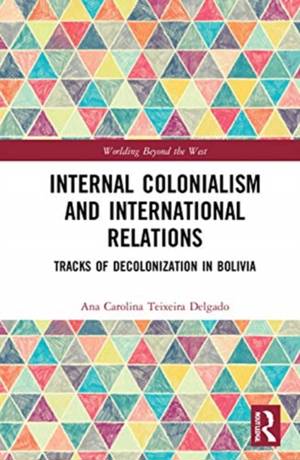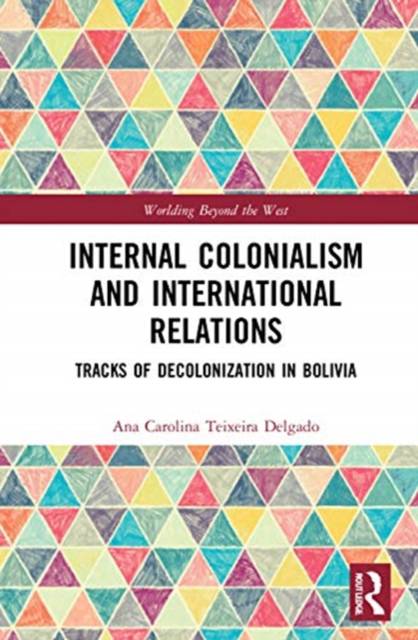
- Retrait gratuit dans votre magasin Club
- 7.000.000 titres dans notre catalogue
- Payer en toute sécurité
- Toujours un magasin près de chez vous
- Retrait gratuit dans votre magasin Club
- 7.000.0000 titres dans notre catalogue
- Payer en toute sécurité
- Toujours un magasin près de chez vous
Internal Colonialism and International Relations
Tracks of Decolonization in Bolivia
Ana Carolina Teixeira Delgado
274,95 €
+ 549 points
Description
This book investigates decolonization as a local process and its connections to international relations, introducing "internal colonialism" as a crucial analytical category for internationalists. Using Bolivia as a case study, the author argues that the reshaping of colonialism and its resistance domestically is also reflected and reproduced abroad by political actors, be they the governments or indigenous movements.
By problematizing postcolonial debate concerning the constitution/reproduction of colonial logics in International Relations, the book proposes a return to the local to show how power relations are exercised concretely by the protagonists of political process. Such dynamics reveal the interrelationship between the local and the international, especially, in which the latter represents a necessary dimension to both reinforce colonialism and oppose colonial logics. Of interest to scholars and students of IR, Latin American and Andean Studies, this book will also appeal to those working in the fields of area studies, anthropology, indigenous politics, comparative politics, decolonization and political ecology.Spécifications
Parties prenantes
- Auteur(s) :
- Editeur:
Contenu
- Nombre de pages :
- 192
- Langue:
- Anglais
- Collection :
Caractéristiques
- EAN:
- 9780367260873
- Date de parution :
- 09-07-21
- Format:
- Livre relié
- Format numérique:
- Genaaid
- Dimensions :
- 156 mm x 234 mm
- Poids :
- 467 g

Les avis
Nous publions uniquement les avis qui respectent les conditions requises. Consultez nos conditions pour les avis.






